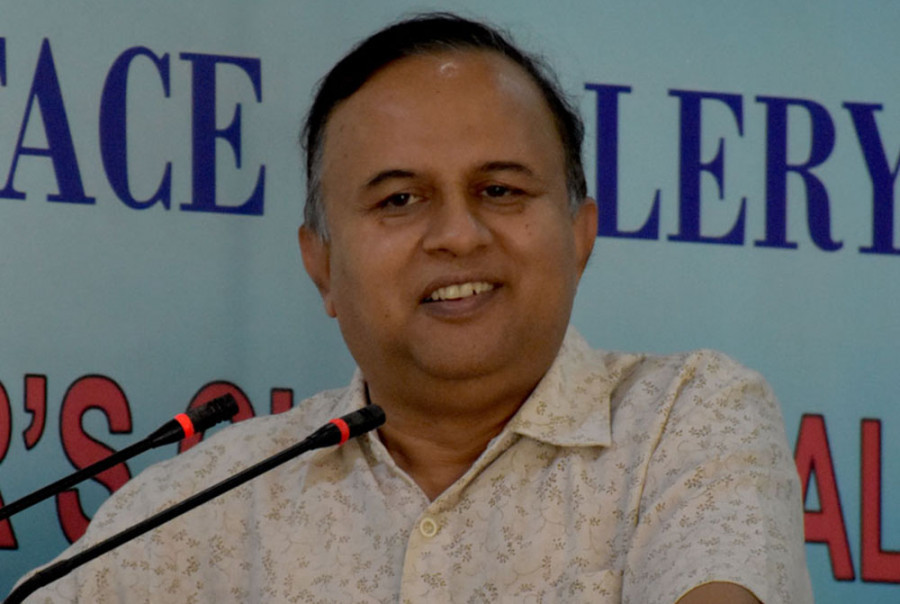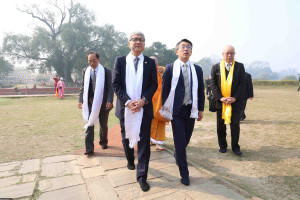Lumbini Province
Pokhrel’s bid to form UML-led government in Lumbini meets with obstacles
A Provincial Assembly member, Bimala Khatri, chooses to side with the Maoist Centre, making the UML fall short of a seat to prove majority.
Tika R Pradhan
After resigning as Lumbini chief minister to dodge the no-confidence motion against him, Shankar Pokhrel, a close confidante of CPN-UML chair and Prime Minister KP Sharma, was preparing to stake claim to a new government under his leadership.
His party UML commanded 41 seats, just enough to secure a majority in the existing 81-member Provincial Assembly.
However, there was a twist in the tale.
One of the members, Bimala Khatri, switched sides and decided to be with the Communist Party of Nepal (Maoist Centre).
With just 40 seats with him, Pokharel now cannot stake claim to the government as per Article 168 (1).
Khatri was elected to the Provincial Assembly in a by-election held on November 30, 2019, from Dang Constituency 3 (B) on the Nepal Communist Party (NCP) ticket. The Nepal Communist Party (NCP) was invalidated by the Supreme Court on March 7 and its constituent parties–UML and the Maoist Centre–were revived.
In a press statement issued on Sunday, Khatri said she decided to be with the Maoist Centre.
Khatri’s move now paves the way for the parties that had filed the no-confidence motion to stake claim to the government.
“We have presented signatures of 40 members of the Provincial Assembly before the provincial chief,” said Krishna Dhoj Khadka, a member of the assembly representing the Maoist Centre. “With Bimala Khatri, who was on the UML’s list, deciding to join us, we have the majority now.”
In the 2017 elections, the Nepali Congress had won 19 seats, Maoist Centre 20, Janata Samajbadi six and Rastriya Janamorcha one seat. With two members suspended and one member elected as Provincial Assembly Speaker, the Maoist Centre had 17 seats until Khatri decided to join the party.
On April 19, 41 members of the Provincial Assembly–19 of the Nepali Congress, 17 of the Maoist Centre and five Janata Samajbadi Party–had registered a no-confidence motion against Pokhrel. They had also demanded a special session of the Provincial Assembly. But hours after the motion was registered, Pokhrel had inducted four Janata Samajbadi Party members into Cabinet. Of the four members inducted as ministers, three had signed the no-confidence motion.
All four were suspended by the Janata Samajbadi Party as members of the Provincial Assembly on April 29.
As demanded by the opposition parties, the Provincial Assembly was set to convene a special session at 1 pm Sunday where the no-confidence motion would have been tabled.
But hours before the assembly meeting, Pokharel on Sunday morning resigned to dodge the no-confidence motion, as during the voting the Madhav Nepal faction was expected to cross the floor, thereby leading to the fall of his government.
His resignation was swiftly approved. Considering that he had 41 members in the assembly with him, he was preparing to form a UML-led government.
But Khatri’s decision to remain with the Maoist Centre threw a spanner in Pokhrel’s works.




 10.55°C Kathmandu
10.55°C Kathmandu















